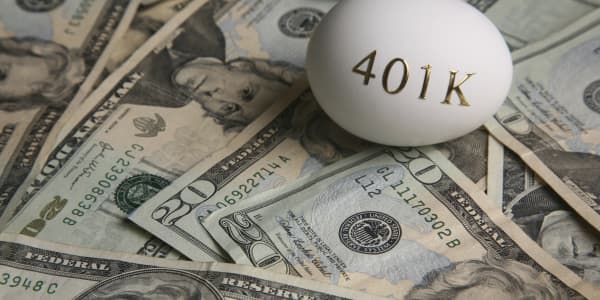The Global M&A Gambit
In the first few weeks of 2014, some of last year's big global M&A trends are already being revisited, as media titans like John Malone prowl for larger pieces of an industry set for more consolidation, and markets like Japan, which in recent years were left for dead, are seemingly back on everyone's radar. Roughly $50 billion has already been offered in the two prominent deals of 2014: John Malone–backed Charter Communications' near-$35 billion offer for Time Warner Cable, and Japanese spirit company Suntory's $16 billion acquisition of Beam.
In 2013, cross-border transactions topped $920 billion, up from $860 billion the previous year, according to S&P Capital IQ. The U.S. ended 2013 with its best domestic M&A deal year since 2007, weighing in with $1 trillion of in-country transactions.
Overall, deals were sparked by "capital markets functioning, cash on balance sheets and activist investors," said Richard Peterson, director of Global Markets Intelligence at S&P Capital IQ. "There was an ability to get financing, and the banks were ready to lend."
Since corporations are still flush with cash, here is a snapshot of 10 of the more interesting, trendsetting deals from the past year, which may trigger more deals sheets as 2014 progresses.
—By Rebecca Fannin, Special to CNBC.com
Posted 28 Jan. 2014
Virgin Media–Liberty Global
Liberty Global's takeover of UK cable company Virgin Media provides scale and a tech edge in a race to offer speedy connections for streaming video, music and audio and bundled services for broadband, TV and phones.
"There's growth in broadband communications as more data and bandwidth is used every day. Cable companies are in the best position to offer connections over TV, smartphones and tablets. Broadband is the information highway of the present and future," said Evercore Partners analyst Bryan Kraft.
Liberty Global is leveraging Virgin Media's investments in superfast broadband connections and advanced interactive TV services to roll out more advanced services, such as HDTV and 3D on demand.
Interestingly, the deal pits cable king John Malone against Rupert Murdoch's BSkyB and BT Vision in the most competitive pay TV market in Europe. Malone has been angling to consolidate the fragmented European cable market and now operates in 14 countries, 12 of them in Europe. The acquisition makes the U.K. its top European market, surpassing Germany.
Europe was the most active region for investors in 2013, scoring $389 billion in deals. "We are seeing some beginning signs of a recovery in Europe, and the U.K. and Germany are the engines," Peterson said.
Deal value: $24.8 billion stock and cash
(From left: John Malone and Rupert Murdoch)
Omnicom Group–Publicis Groupe
The merger of ad industry giants Publicis Groupe and Omnicom Group to create bragging rights as the world's largest advertising agency was surprising for its heft, even in a business that has seen a lot of consolidation in recent years.
The combined agencies benefit from buying power to better negotiate media rates and place ads. "These two players can shift the economics of ad agencies and marketers at the expense of the media owners," said Brian Wieser, an analyst with Pivotal Research Group.
The deal adds weight for the players in the fast-growing and techcentric digital media arena. "Publicis has been very aggressive in buying up strong digital platforms, while Omnicom has been more conservative," commented S&P Capital IQ equity analyst Westcott Rochette.
Another benefit of the deal is more breadth for the players in emerging markets, where both have a considerable presence.
Cost-cutting was downplayed as a rationale, but Rochette said the merger will generate $500 million in cash savings over the next five years, or about 2.6 percent of operating expenses, as functions are combined.
Deal value: $21.9 billion all-stock transaction
BMC Software–Bain Capital, Golden Gate Private Equity, Insight Venture Partners (lead investors)
's buyout deal gives the former publicly-traded company more leeway to strategically reinvest in the business and drive innovation.
The enterprise software vendor was under pressure from activist shareholders demanding better performance after it failed to keep up with online competitors and lost market share.
"BMC was caught flat-footed with the shift to cloud computing and SAAS (software as a service)," said Jefferies analyst Aaron Schwartz. "Now by going private, they can reinvest to generate additional growth."
BMC's private equity investors will use its ample cash flow generated by a highly profitable mainframe computing business to pay down debt and will look to streamline operations and sell off nonperforming pieces, said Joel Fishbein, an analyst with BMO Capital Markets.
Deal value: $8.2 billion cash
Smithfield Foods–Henan Shineway Industry Group Co.
The Chinese acquisition of pork-processing giant , the largest Chinese takeover in the U.S. in a growing trend, was juiced by China's growing middle-class consumers who crave higher-quality meat to supplement their diet and need improved food safety.
"China is developing a middle-class population that wants high-quality Western foods and infant formula that doesn't kill children," said D.A. Davidson analyst Timothy Ramey. Cash-rich Chinese acquirers flexed their muscle in 2013, investing a record $62 billion abroad. Asia deals checked in at $185 billion.
The deal gets Smithfield into the largest pork market in the world. The same trends are benefiting meat producer , nutrition company , and the more controversial Nu Skin Enterprises. The Chinese government said this week it is investigating the skin-care and nutritional products company after press allegations that it could be operating a pyramid scheme. Ramsey predicted that more deals similar to the Smithfield acquisition could develop.
Deal value: $7.3 billion cash, plus assumption of debt
Saks–Hudson’s Bay Company
The deal by Hudson's Bay Company to buy retail chain gives the Canadian retailer an opportunity to bring the well-known luxury banner up north to Canada, ramp up purchasing power throughout North America and broaden its merchandise to include more upscale brands as luxury shopping picks up post-recession.
The Saks deal was not the only Canadian buy in the U.S. retail market. Neiman Marcus was sold to a Canadian pension fund and private equity investor Ares Management.
"The deal with Saks is a highly strategic investment, and potentially it is a once-in-a-lifetime opportunity," said Howard Tubin, an analyst with RBC Capital Markets. "Hudson's Bay is a savvy operator and will leverage the infrastructure of Saks."
Hudson's Bay management is knowledgeable about the U.S. retailing market through ownership of U.S. upscale retailer Lord & Taylor. Some Saks stores could be converted to Lord & Taylor to save costs.
Another attraction of the Saks deal is its real estate, including the flagship store on Fifth Avenue, said Tubin. Hudson's Bay management could spin off some property into a real estate investment trust.
Deal value: $2.7 billion cash
Activision Blizzard–Leonard Green & Partners, Davis Selected Advisers, Tencent Holdings
The buyout of gaming company from parent by investors recapitalizes the business, gives management control of the board and significantly introduces a new savvy China tech leader, , as a minority owner.
The deal gives Activision and its World of Warcraft franchise "greater flexibility to return capital to shareholders through an increased dividend or share repurchases," Barclays analyst Christopher Merwin noted in a research report.
Activision gains an opportunity to launch titles and sell virtual goods in China with Tencent and has already partnered with the Chinese investor on one game, Merwin pointed out. It's foreseeable that Activision could work with Tencent to move some titles away from consoles to mobile games, China's forte.
Deal value: $2.3 billion cash and shares
Panasonic Healthcare–Kohlberg Kravis Roberts & Co.
Private equity investor has made no secret of its aims to make bigger bets on Asia, particularly Japan, where the firm has been angling to acquire mature Japanese companies as the economy improves in the world's third-largest market. Japan saw nearly $18 billion in company sell-offs in 2013 as the market opened up to foreign buyers and private equity investors.
The leverage buyout of Panasonic Healthcare, KKR's second deal in Japan, is a breakthrough deal. The Japanese market traditionally has not favored foreign private equity investors, and local companies have been resistant to restructuring.
KKR is selling back a 20 percent stake in the health-care business to Panasonic Corp., which has been shedding non–core assets to raise cash to strengthen its finances, and both are now managing the operation.
KKR is reaping a return from its Asian strategy after opening an office in Tokyo in 2006 and raising a second Asian fund of $6 billion, the region's largest, in 2013. KKR's first fund for Asia in 2007 has been "one of the better recent funds," with a net investment return of 13 percent, according to BMO Capital Markets analyst David Chiaverini.
Deal value: $1.7 billion private equity purchase of shares and third-party share allocation
VION Ingredients Netherlands–Darling International
The joining of long-established and large food-industry specialists VION in the Netherlands and in the U.S. creates a global leader with heft and efficiency to go after large contracts in a highly concentrated and competitive business with steep barriers to entry.
"It's a transformative deal that takes a North American company into an international scale and moves them up the value chain in the agribusiness markets," Canaccord Genuity analyst John Quealy said.
The food by-products recycling business has been consolidating over the past five years into a handful of contenders. The Darling acquisition absorbs VION's operations across Europe in the Netherlands, Belgium, Germany, Poland and Italy and gives it an important presence in China. The deal comes as the market sees increased demand for biofuels, pharmaceuticals and animal proteins.
Deal value: $2.2 billion cash
Agila Specialties Private Limited–Mylan
This strategic acquisition positions as a leading drugmaker globally by adding new turf in India and Brazil and nabbing market share in fast-growing market segments. The deal showcases active dealmaking in India, where cross-border acquisitions topped $12.3 billion in 2013.
The deal doubles Mylan's business in the injectable medicines market, which is projected to grow by 13 percent annually over the next three years.
"We like this deal because of the high barriers to entry and the expansion into new markets," said UBS analyst Marc Goodman. "This deal adds a couple of new countries for Mylan to build around, and Mylan does that well. Mylan also has a good track record of making its transactions even better and will do that with Agila."
Based in Bangalore, Agila complements Mylan's operations with a broad range of drugmaking facilities, strong research and development and a presence in high-growth emerging markets.
Deal value: $1.9 billion cash
AerCap Ireland–International Lease Finance Corp.
's acquisition of ILFC from set some new standards not only for deal size and strategic value in upgrading a business but also for uniqueness in that a smaller company bought a larger one.
"AerCap is an opportunistic buyer, and this was the ultimate of transactions," said Credit Suisse analyst Moshe Orenbuch. "They bought a company that is multiples of their own size and in partnership with AIG, which is taking a 45 percent interest in the new company."
The transaction quadruples AerCap's aircraft that it purchases, owns and leases and will help it upgrade the fleet so that newer planes will account for 43 percent of revenues by 2018, up from only 7 percent currently.
AerCap's favorable tax jurisdiction in Ireland made the deal particularly advantageous.
Deal value: $27.8 billion cash and newly issued shares




